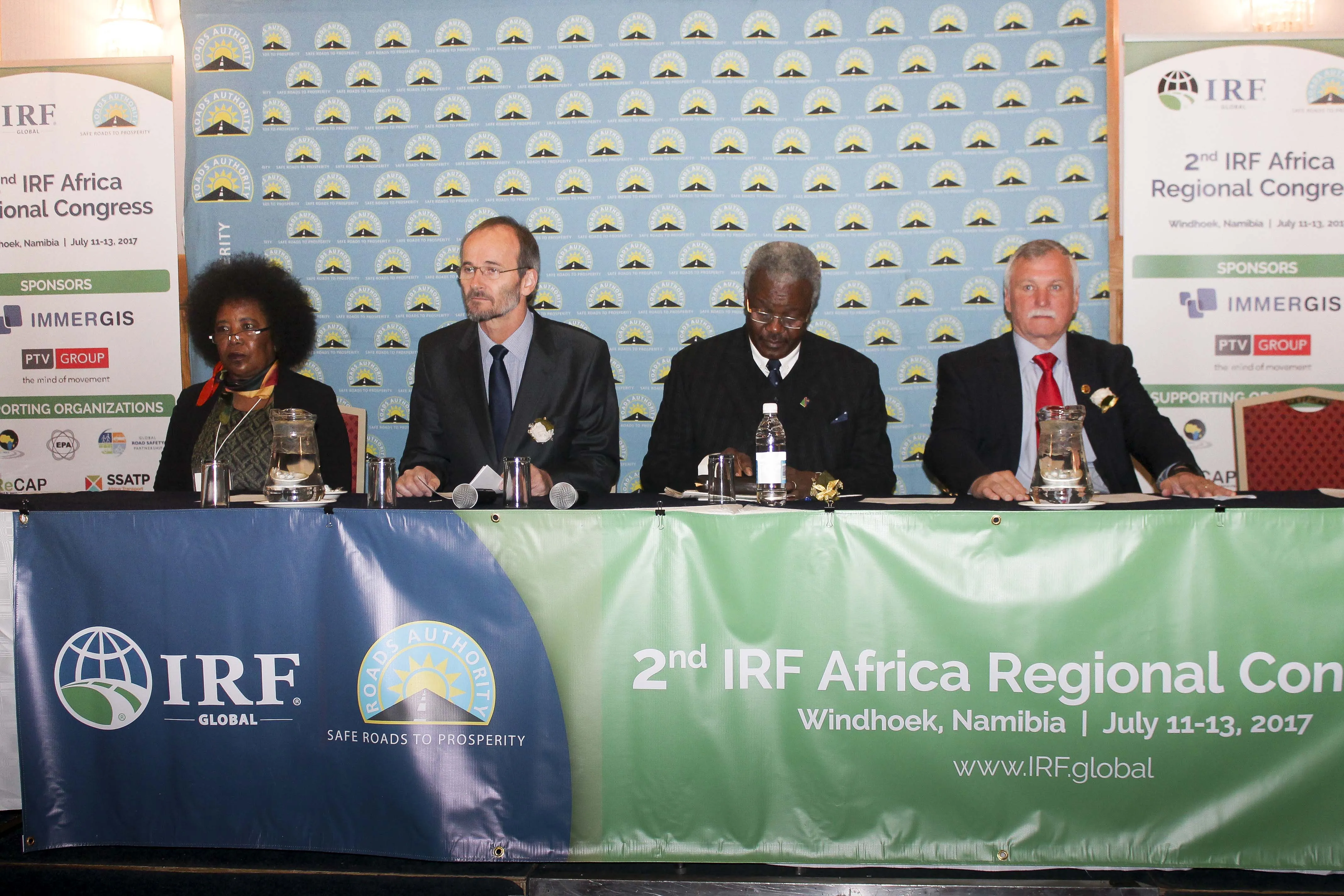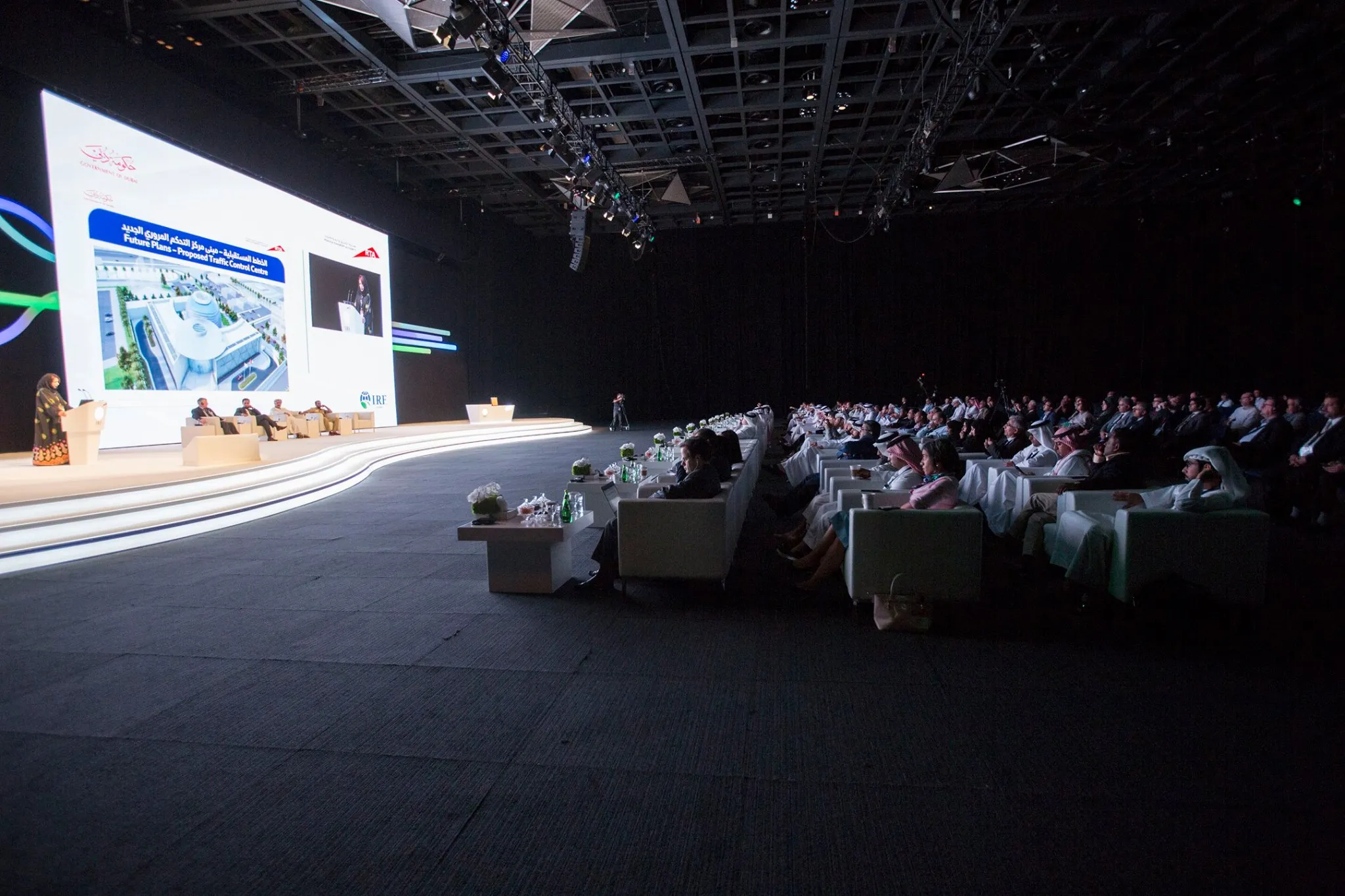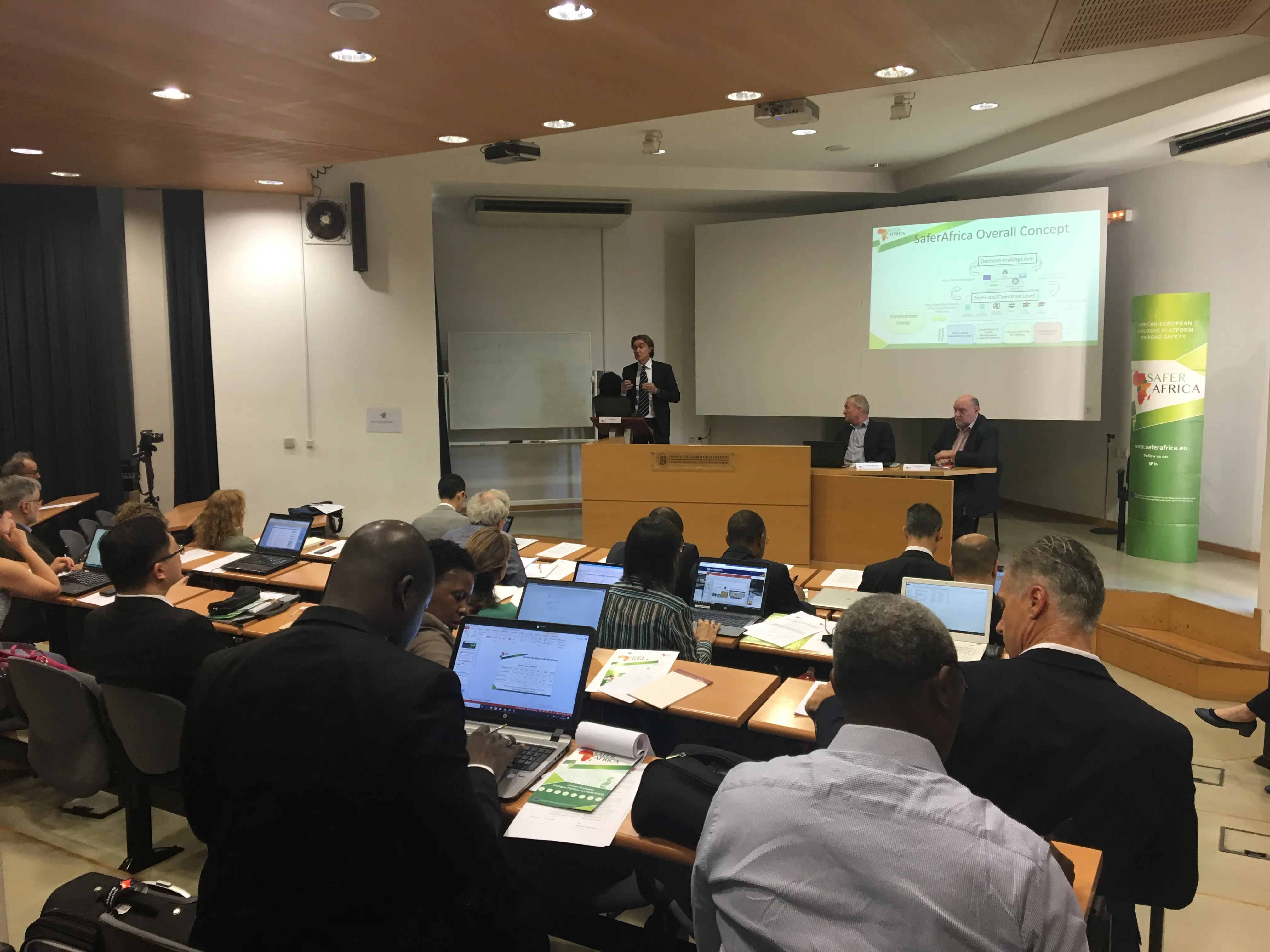
The event, which gathered more than 150 delegates from 26 countries across the continent, was notable by the quality of its interdisciplinary dialogue among governmental, industry, and civil society stakeholders. “Platforms of this nature afford us all the opportunity to listen, share, and learn from each other’s contributions,” said Namibia’s Works & Transport minister Alpheus !Naruseb in his opening address. “Namibia has made major strides in infrastructure development; however, in spite of these noteworthy milestones, road safety is one of the major concerns in the transportation industry. We are fortunate to be joined by representatives of different groups who all share our passion and commitment to road safety, and we need to join hands and come up with better interventions to ensure road safety for motorists and pedestrians.”
In his address to delegates, IRF executive vice president Michael Dreznes said, “The IRF’s vision to be a global broker of knowledge through Congresses such as these meets a continent in need of fresh new ideas to develop the technical and managerial capacity of its road professionals. Skilled frontline personnel and managers able to formulate, plan, and manage highway infrastructure programs will increasingly make the difference between those countries that are successful in reducing their connectivity deficits, and those that risk getting left behind.”
The need to train the next generation of transportation experts in areas ranging from road safety and rural accessibility, to climate-resilient infrastructure and innovative financing was thoroughly reviewed during the three-day event. Development partners presented ways to equip future managers with the resources to challenge the status quo and embrace new policy instruments and technological enablers. A dedicated workshop on leadership development open to all congress delegates was organised in partnership with the UKAID-funded Research for Community Access Partnership (ReCAP) with the goal to generate regional consensus on educational programs for Africa’s future industry leaders. One of the organisers of the workshop, ReCAP knowledge manager Caroline Visser said, “The 2nd IRF Africa Regional conference offered a great opportunity for the ReCAP program to engage with key stakeholders in Africa and raise awareness about the rural access research programme we run. Our Transport Sector Leadership Program work shop saw great attendance and lively debate with everyone engaging in the discussion.”









